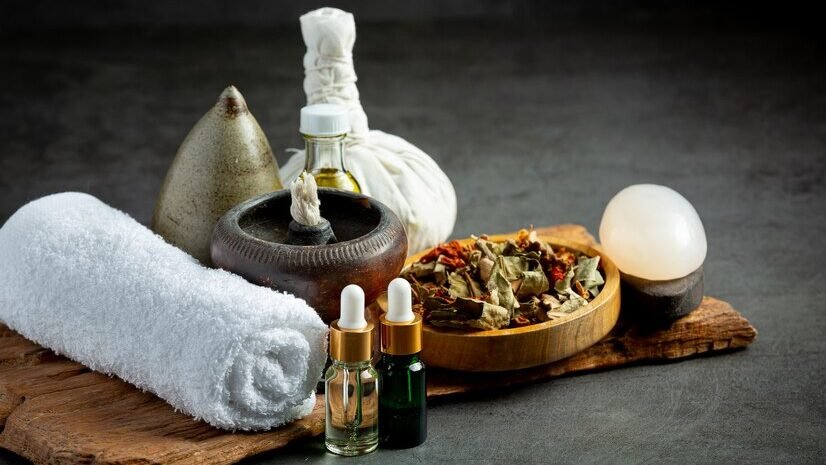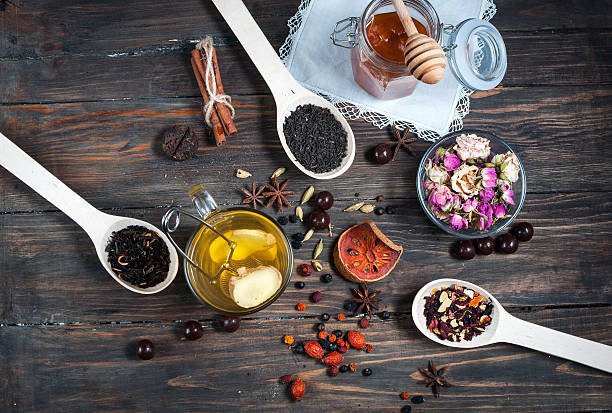Aromatherapy is a holistic healing treatment that uses natural plant extracts, known as essential oils, to promote health and well-being. Sometimes referred to as essential oil therapy, aromatherapy employs aromatic essential oils medicinally to improve the health of the body, mind, and spirit. It enhances both physical and emotional health.

How Aromatherapy Works
Aromatherapy works through the sense of smell and skin absorption using products such as these:
- Diffusers
- Aromatic spritzers
- Inhalers
- Bathing salts
- Body oils, creams, or lotions for massage or topical application
- Hot and cold compresses
- Clay masks
Essential Oils
Essential oils are concentrated plant extracts that retain the natural smell and flavor, or “essence,” of their source. They are obtained through distillation (via steam and/or water) or mechanical methods, such as cold pressing. Essential oils have unique chemical compositions that affect how they smell, how they are absorbed, and how they are used by the body.
Common Essential Oils and Their Uses
- Lavender: Promotes relaxation, treats anxiety, fungal infections, allergies, depression, insomnia, eczema, nausea, and menstrual cramps.
- Peppermint: Used for digestive issues, headaches, muscle aches, joint pain, and itching.
- Eucalyptus: Relieves colds, coughs, asthma, sinusitis, and respiratory infections.
- Tea Tree: Antimicrobial properties, treats acne, athlete’s foot, lice, nail fungus, and insect bites.
- Lemon: Improves mood, reduces anxiety, treats sore throats, and aids digestion.
- Chamomile: Promotes sleep, reduces anxiety, soothes skin conditions, and relieves digestive issues.
- Rosemary: Enhances memory, concentration, and treats muscle pain, and improves hair and skin health.
Benefits of Aromatherapy
- Stress Reduction: Certain scents like lavender and chamomile can calm nerves and reduce stress.
- Mood Enhancement: Citrus oils like lemon and orange can uplift mood and reduce anxiety.
- Improved Sleep: Oils such as lavender and chamomile are known for their sleep-inducing properties.
- Pain Relief: Peppermint and eucalyptus can relieve headaches, muscle pains, and joint pain.
- Antibacterial and Antimicrobial: Tea tree and eucalyptus oils have properties that can help fight bacteria and fungi.
- Improved Digestion: Oils like peppermint and ginger can help with digestive issues.
Safety and Precautions
- Dilution: Essential oils are potent and should be diluted with a carrier oil before applying to the skin.
- Patch Test: Conduct a patch test to ensure there is no allergic reaction.
- Consultation: Consult with a healthcare provider, especially if pregnant, nursing, or have medical conditions.
- Quality: Use high-quality, pure essential oils from reputable sources.
Conclusion
Aromatherapy and essential oils offer a natural approach to healing and enhancing overall well-being. Their uses span across physical, emotional, and psychological health, providing a versatile and accessible means to support holistic health practices.

